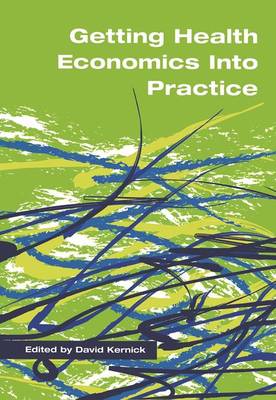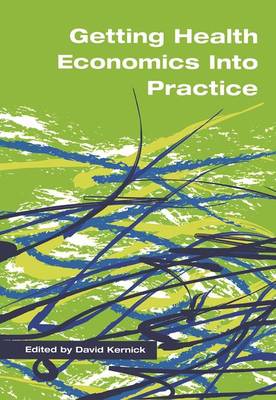
- Afhalen na 1 uur in een winkel met voorraad
- Gratis thuislevering in België vanaf € 30
- Ruim aanbod met 7 miljoen producten
- Afhalen na 1 uur in een winkel met voorraad
- Gratis thuislevering in België vanaf € 30
- Ruim aanbod met 7 miljoen producten
Zoeken
Omschrijving
Fifty years ago medicine was straightforward. Doctors had limited therapeutic options and patients did as they were told. Today, an array of medial interventions is putting increasing pressure on limited resources, patients are questioning everything and doctors are uncertain of their role. Health economists hoped to offer important insights to aid decision making, but their technical frameworks bore little resemblance to the practical requirements of end users. Now, this book presents the concepts and insights that health economics has to offer in a way that is accessible to every healthcare decision maker. Getting Health Economics into Practice is for all those who are involved in the planning, commissioning and delivery of healthcare. It illuminates the practical value that the concepts and principles of health economics can offer decision makers at all levels. Comprehensive and extensive, it is the first such book to be edited by a clinician rather than a health economist, with contributions from an expert panel of specialists. This approach ensures it is accessible and useful in the everyday work of health professionals. It is relevant for all healthcare sectors, in particular for Primary Care Trusts, and is essential reading for managers, researchers, and especially practitioners.
Specificaties
Betrokkenen
- Auteur(s):
- Uitgeverij:
Inhoud
- Aantal bladzijden:
- 370
- Taal:
- Engels
Eigenschappen
- Productcode (EAN):
- 9781857755756
- Verschijningsdatum:
- 1/09/1996
- Uitvoering:
- Paperback
- Formaat:
- Trade paperback (VS)
- Afmetingen:
- 170 mm x 245 mm
- Gewicht:
- 179 g

Alleen bij Standaard Boekhandel
+ 127 punten op je klantenkaart van Standaard Boekhandel
Beoordelingen
We publiceren alleen reviews die voldoen aan de voorwaarden voor reviews. Bekijk onze voorwaarden voor reviews.











